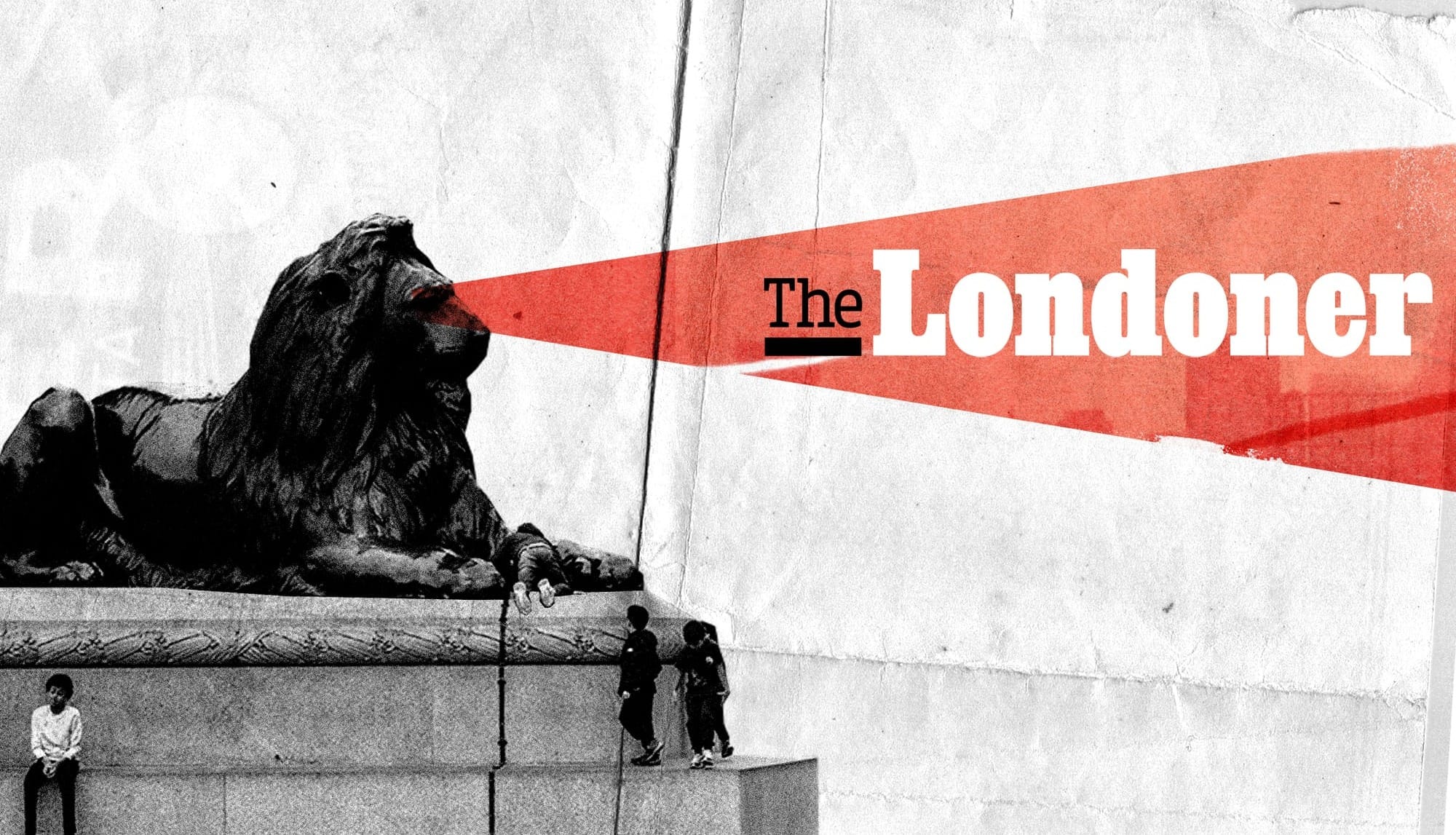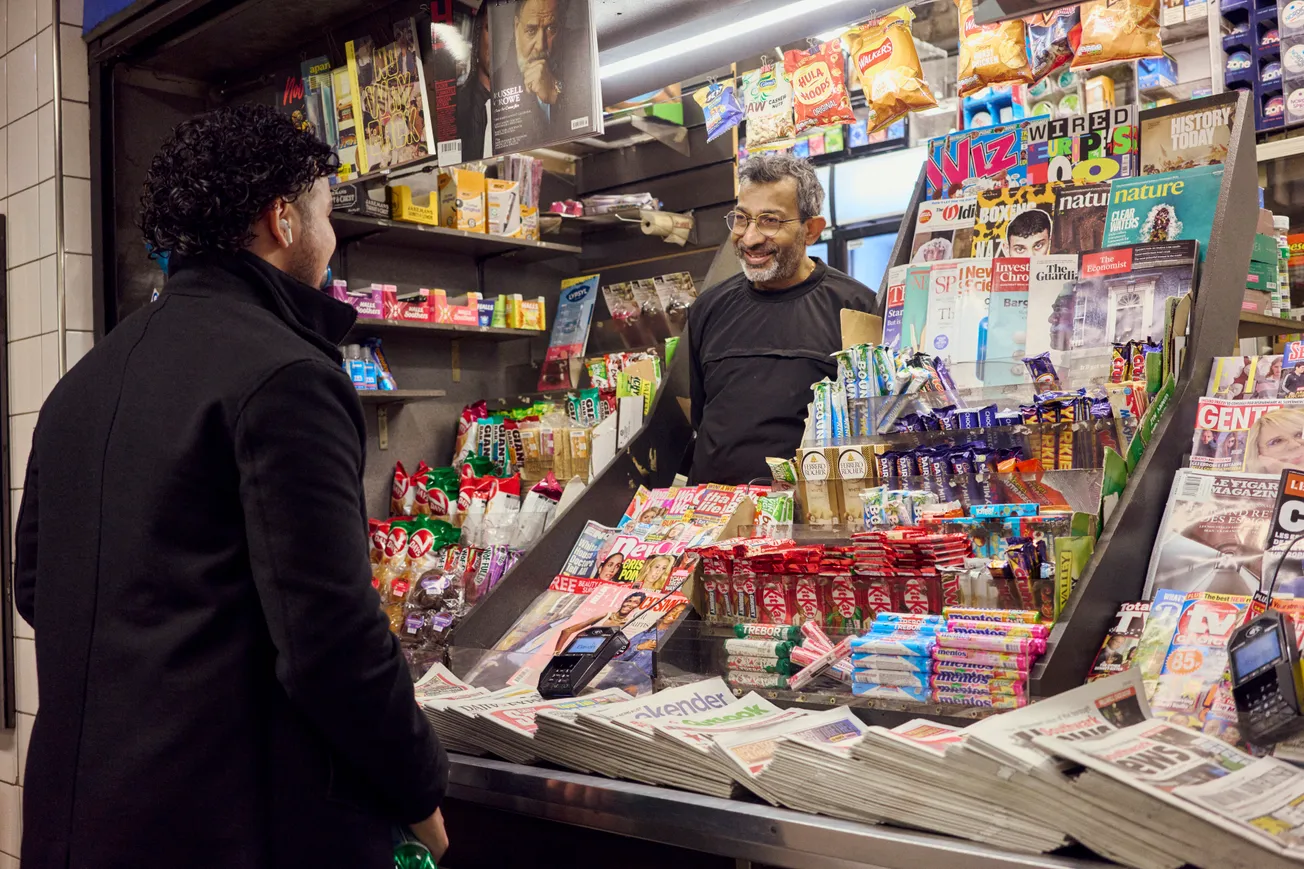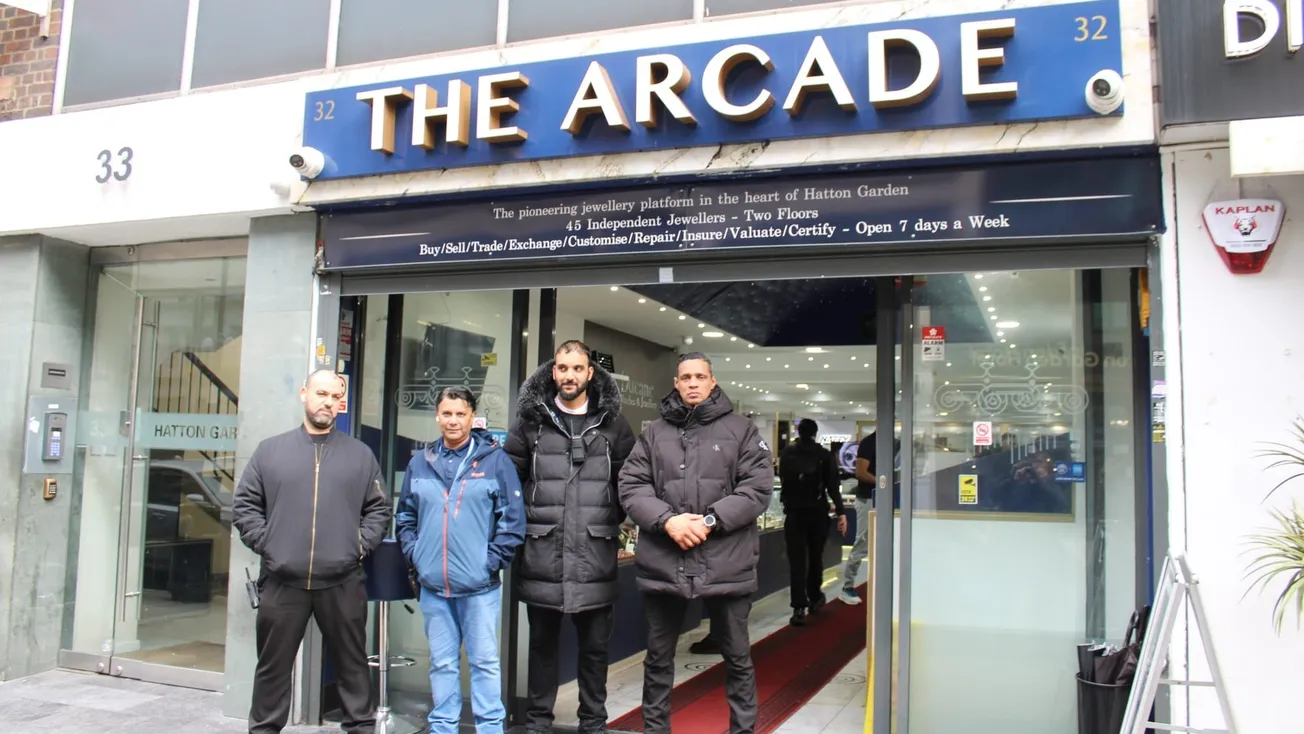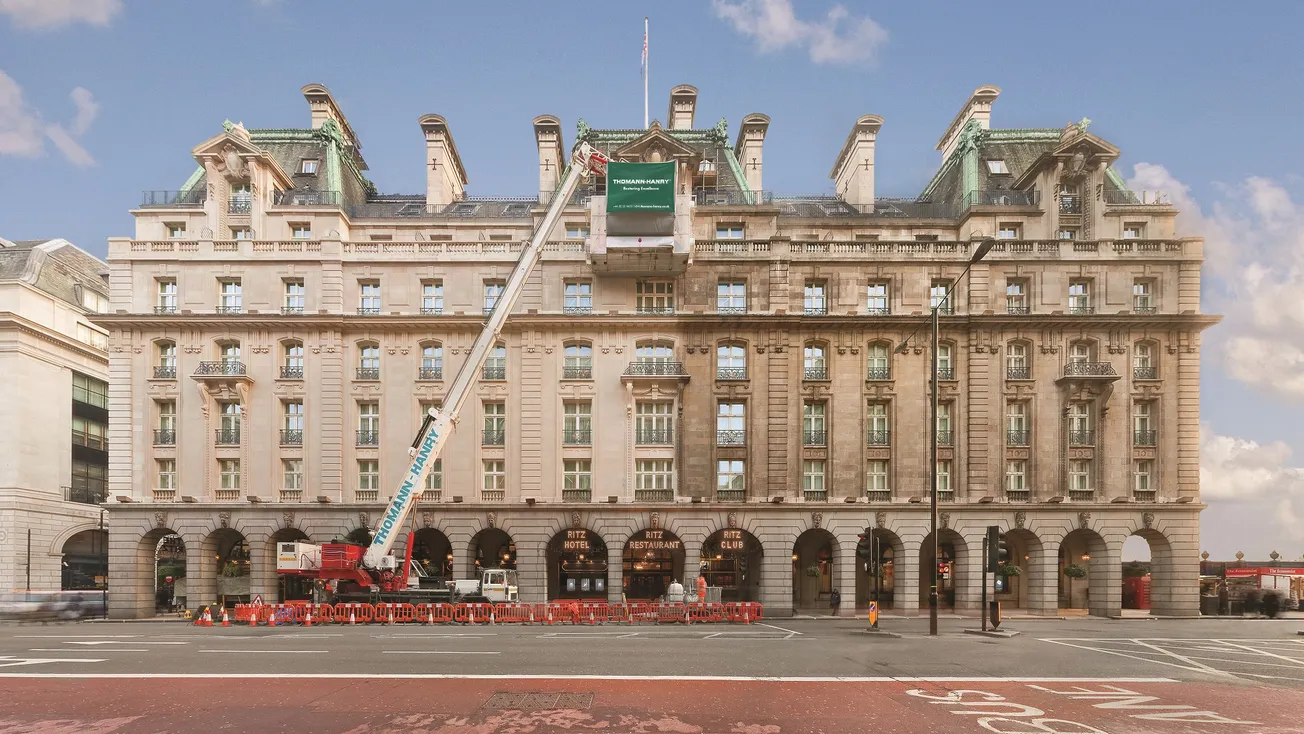Get ready for the heat with our Londoner summer discount. For just £4.95 a month for your first three months, you can read this story — and the rest of our members-only content. That's a nearly 50% saving, meaning you can treat yourself to one more spritz, guilt-free. Act fast though, it can't stay forever.
On a Monday night in SE15, I’m watching the mayor of Peckham sing about piña coladas and getting caught in the rain. It’s karaoke night at Set Social, a members’ club on the site of an old Baptist church at the end of Rye Lane, and the 30-something man on the mic isn’t technically the elected representative of anywhere — his name is Dexter, and I will later discover that he’s an engineer. But he calls himself the mayor of Peckham, so everyone else does, too. Watching the adoring response he’s getting from the mostly Gen Z crowd, you suspect he’d have the youth vote sewn up if he did ever run for local office. Early 20-somethings in skater shorts and denim mini skirts are moshing ecstatically on the worn grey carpet in front of the stage, potentially the first time that’s ever happened to the strains of Rupert Holmes’ 1979 soft-rock anthem.
“Who said Mondays are boring?” yells karaoke host Frankie, taking the mic back from Dexter as he wraps up his performance. “Mondays aren’t boring when you’re at Set!”
If you don’t live in south-east London or know anyone who graduated from Goldsmiths in the last 10 years, you may not have heard of Set Social. But for many young creatives and their friends — artists, musicians, writers and activists living in houseshares in Nunhead, Lewisham or New Cross; the kind of people who frequent Venue MOT and have opinions on ethical non-monogamy — this slightly faded former church hall is one of the most desirable places you could choose to spend an evening in 2025. “Set is full of lots of young, trendy, creative people [wearing] charity shop clothes and Tabis – very hot girls, very bedraggled boys,” says graphic designer Shereen*, 26, who I meet in the venue’s beer garden. The average Set Social member “probably went to Goldsmiths or Camberwell College of Art”, Shereen continues, and “they’re not quite champagne socialists… but they are a little bit.” (Shereen is not her real name; like every Set member I spoke to for this piece who had even mild criticisms of the club or its clientele, she requested to be kept anonymous.)
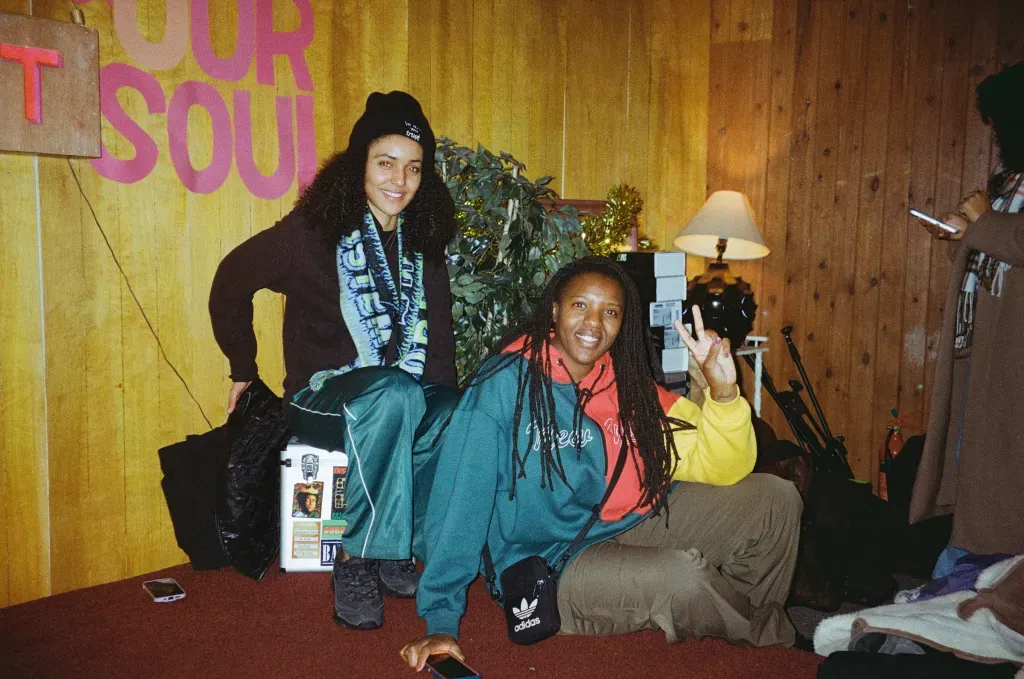
“I used to joke that Set was the Soho House of Peckham,” says Nadia, a 28-year-old freelance illustrator from Herne Hill who’s hosted a regular quiz night at Set Social since last year. When the club first opened its doors at the end of 2022, “there was a kind of exclusivity to it”, Nadia explains. Membership cost just £8 a year, but you had to fill out a detailed application form outlining your interest in the arts in order to join; acceptance wasn’t guaranteed. This made Set alluring — alongside its two pool tables and a weekend license that runs until 1am, sometimes 3am (both hot commodities in Peckham since late-night pool club Canavan’s closed during the pandemic). “There was something exciting about creative people having this hub where we could hang out,” says Nadia. Today, it's the place to be for people who are “young and queer and a little bit weird”.
Enjoying this edition? You can get two totally free editions of The Londoner every week by signing up to our regular mailing list. Just click the button below. No cost. Just old school local journalism.
A members’ club for young creatives: it’s not exactly a new idea. But while Soho House and similar venues project an air of glossy luxury, Set's atmosphere is ramshackle and DIY — more akin to members-only spots like Trisha’s in Soho and Walthamstow Trades Hall (a former working men’s club on the other side of London also experiencing an influx of younger members). The pine-panelled bar is furnished with old chesterfield sofas with the stuffing falling out, and the two gender-neutral toilets, one of which is frequently out of order, are plastered with stickers: “FREE PALESTINE”, “FUCK CAPITALISM”. The main hall, meanwhile, has the friendly but worn-down vibe of an old primary school hall. (A Sunday school did actually stand on the site for almost five decades before it was knocked down and replaced by the current church building in 1963.)
For its members, however, this is all part of the charm. “There's so many corporate venues in London that are overly slick, but Set is the opposite,” says the writer, sculptor and curator Phineas Harper. “The chairs are beaten up. Floor tiles are missing.” Harper has hosted a number of events at Set Social, including a launch party for the book London Feeds Itself by Vittles founder Jonathan Nunn; last time they ran something in the main hall, music from the bar “began playing through the speakers on our stage over the top of the speeches. The audio guy — who also seemed to be the venue manager for the night — said there was no way to stop it.” Harper is relaxed about the idea of something going wrong at their next event at Set Social, a lighthearted panel debate about the “hellscape” of dating in London. “That's the fun of it… Some chaos is always on the menu [at Set].”
Harper describes Set’s clientele as “arty types just looking for cheap space to stage wacky projects”. There’s certainly a lot of that, but membership is no longer limited to creatives. The venue is now billed as “a members’ arts and social club” with “a focus on inclusivity and self-expression”, and anyone is welcome to apply for a membership as long as they agree to abide by the house rules (“be warm, thoughtful, kind and respectful of each other and our team”). On the whole, this hasn’t resulted in the clientele shifting significantly; everyone agrees it is still extremely art-school coded. But there was a brief period where “you had a lot of people from Clapham coming”, says Iza, 26, a Peckham-born artist and restaurant manager wearing a stretchy swan-print dress. She wrinkles her nose. “It was like, finance bros in here.”

Set’s founders noticed a shift even before their team started getting disgruntled anti-Clapham feedback from longstanding members. “I remember being like, there's a lot of puffer jackets around the pool table all of a sudden. There’s a different energy,” says Ollie Tobin, who launched Set (the charity behind Set Social) in 2016, along with his childhood friends Josh Field and Roland Fischer-Vousden. In response, the team temporarily paused applications and introduced welfare officers. “Wherever there was an argument or something like that, [the welfare officers] would go over and talk to people and defuse it,” says Field. The rowdy finance bros quickly stopped coming, and today you’re more likely to get chatting to someone with a day job at a tech firm or sustainability consultancy. They tend to be more low-key: Piers, 29, who works in “software” and is wearing an expensive-looking brown leather jacket that wouldn't be out of place in Shoreditch House, tells me he has no interest in more upmarket members’ clubs. “They’re all a bit more status-y… Here, everyone’s just trying to be about the community.”
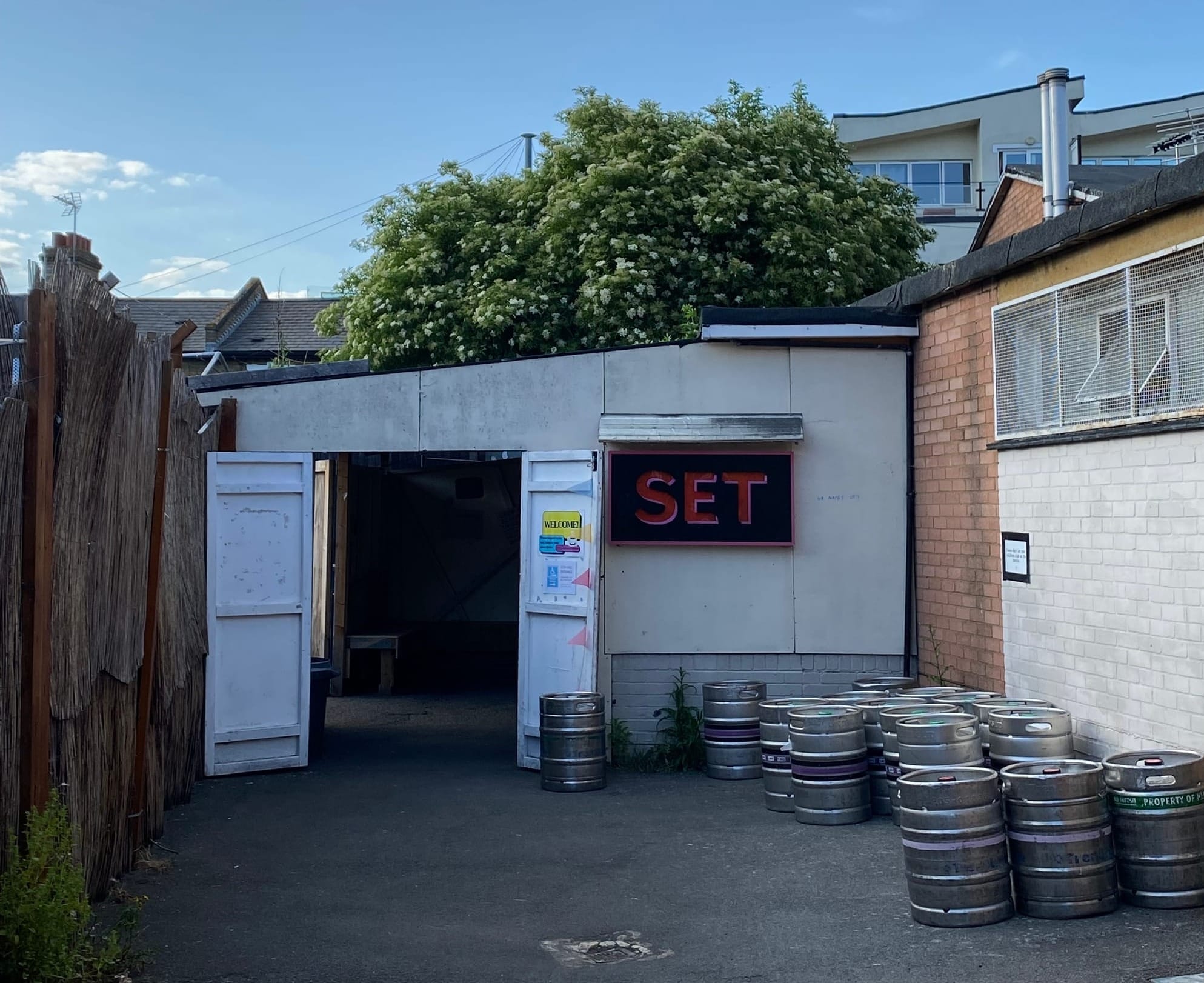
Are they, though? That’s certainly the intention of Set’s founders. The charity works to turn vacant buildings across London into arts and community spaces via short-term leases, hoping to channel the spirit of old-school left-wing social clubs as well as the sense of freedom and collectivism that comes with a squat, says Field. (He, Tobin and Fischer-Vousden began setting up squats across London aged 16, inviting peers to use the spaces to develop experimental arts and music projects.) Fees have always been low — £12 gets you a year’s membership for Set Social and Set Vault, its sister space in Woolwich — and local community groups are actively encouraged to use the venues for free. Both venues have community gardens during the day, while Set Social boasts a community lending library and operates as a “public living room”, where anyone can relax during the day without the obligation to spend money. Still, in the evenings the space is mostly filled with “mainly middle-class white people”, says Carin*, a 25-year-old artist and teacher with a sleek blonde bob.
Carin is at pains to stress that she thinks Set is “amazing”, particularly Queer Prom — a club night where hundreds of people “get to live out a teenage fantasy that they weren't included in at the time”. She remembers watching a dance battle where people competed for the titles of prom king and prom queen (“literally just dry humping on the floor”) and taking part in a raffle to raise funds for someone’s top surgery. “So it is very inclusive in some ways,” she says. “But at the same time, there is one type of person here, and that’s hard to overlook.”
These conversations are particularly sensitive given the gentrification of Peckham, where house prices have risen by 492% in the last 25 years. Jimi*, 30, a musician who grew up in New Cross Gate and now lives out in Crystal Palace, became a member so he could play pool before a night out. “I’ve never had any bad experiences in terms of the people that are [at Set Social] — people are generally nice,” he says. “But me and my friends stick out like a sore thumb, because we’re Black men. It’s just not very diverse, and sometimes it doesn’t feel like a place where people integrate. It can feel like people are too cool to talk to each other.” He prefers to go to Jumbi up the road, a bar and restaurant founded by DJ Bradley Zero to celebrate the Afro-Caribbean diaspora. Shereen, who grew up in East London and is mixed-race, is more direct: “I don’t want to take away from the good they do, because I do think they do a lot. But when they say [Set Social] is for the community, really it’s for the University of the Arts crowd. How can it be for the community of Peckham when you're putting on a fucking ceilidh?”
The relative lack of diversity is something Set’s founders are “very aware of”, says Tobin, adding that this is particularly noticeable on Friday and Saturday nights, when Set Social tends to run DJ nights instead of community events. “It is something that we are trying to change.” Field says he understands why people who grew up in and around Peckham might be wary of Set Social, or see them as gentrifiers — a perception added to, perhaps, by the fact that Field and Fischer-Vousden met at the fee-paying Friends’ School in Saffron Walden (Field, who grew up in Hackney, attended on an arts scholarship).

“We are very conscious of the fact that loads of other businesses come in [to Peckham] and just price everyone out and only want a certain kind of clientele,” says Field. This is, after all, the neighbourhood where a new yoga studio once went viral for complaining about the noise from nearby West African churches, and where protests have recently been held over the redevelopment of a shopping centre into luxury flats. “I think there's a lot of fear of new stuff, and rightly so.”
We’re on a mission to bring quality journalism back to the capitals. Sign up to our mailing list and get two completely free stories from The Londoner dropped into your inbox each week.
Part of the problem, says Field, is that before Set launched entertainment venues, the charity focused on facilitating studio space to young artists, most of whom were fresh out of Goldsmiths and Slade. This engenders a certain demographic: arts degree courses are among the least ethnically diverse in the country, while the arts, culture and heritage workforce is 90% white across England, Wales and Northern Ireland. Set’s goals “have evolved” from their art-school focus of the past, he continues; they hope to eventually buy the Set Social building from its current landlord and run it as a permanent non-profit community space. (Set Vault in Woolwich is due to close in August as the premises are being redeveloped; a new Set venue in south London is also expected to be announced soon.) “We had the trust of our studio membership and our following already. Now we need to build a different level of trust with different people.”
Out in the smoking area at the end of karaoke night, I get talking to Dexter, the mayor of Peckham. He’s Black, and grew up in different neighbourhoods in South East London. “It is majority artsy students here, but I don’t have a problem with that,” he says, mildly, adding that he thinks the Set Social team has “done pretty well so far” at engaging with the local community. Of course, Peckham “has changed over the years”, he continues: “It’s very gentrified now. But a lot of people are welcome.” Suddenly, on the other side of the smoking area, a white man with a shaved head pulls down his baggy jeans, the better to compare leg tattoos with his female friend. Dexter roars with laughter. “That is part of coming to Set. They’re part of the gentrifiers. But it’s okay — he’s my mate.”



